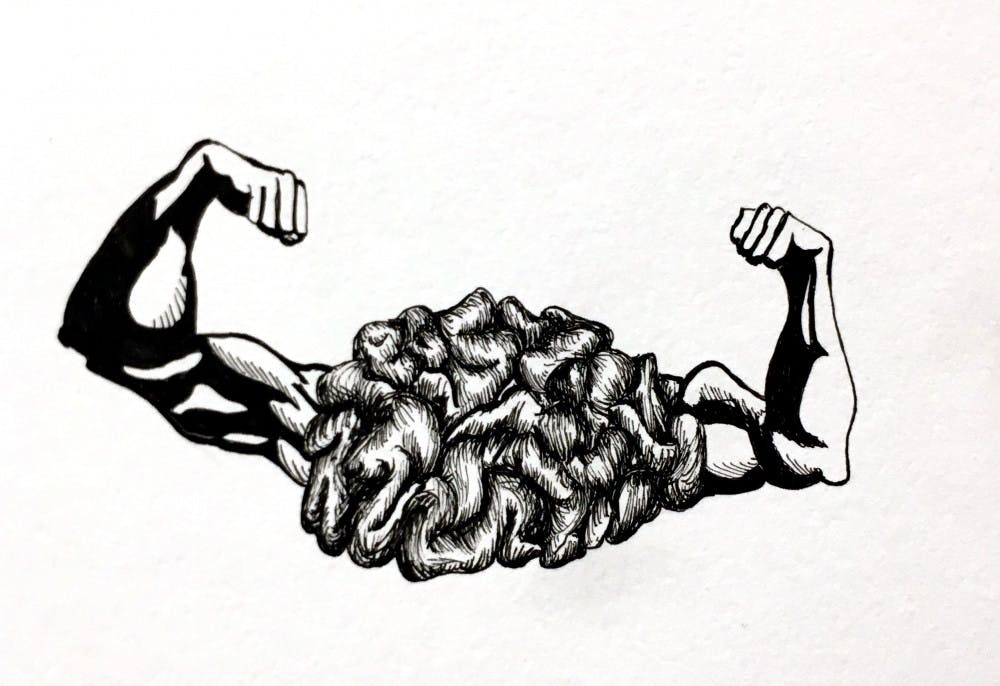A new computational study of habit formation co-authored by a University professor suggests that habits may be formed primarily out of repetition and are not necessarily based on the habit’s goal.
Researchers set out to test whether a model of habit formation solely based on repetition could function as well as previous models that are goal-oriented, and they found convincing evidence that it could. Rather than testing this question on living creatures, the researchers used a computer simulation that they designed to behave like a living brain.
The study was conducted by Assistant Professor of Cognitive, Linguistic and Psychological Sciences Amitai Shenhav, Kevin Miller, who contributed to the study while he was a PhD student at Princeton University, and Associate Professor of Psychology at the University of Warwick Elliot Ludvig.
The paper proposes a shift in thinking when it comes to habit formation, Ludvig said. “A basic implication (of the paper) is that … repeating an action will lead you to do that more,” Shenhav said. If habits are seen primarily as value-based, then relearning the value of a certain outcome should be sufficient to change the habit; however, if they are value-free, then it is not sufficient to adjust the outcome, and instead the behaviors themselves have to be relearned, Shenhav explained.
Modern theories of habit formation generally follow the principle that actions are reinforced by positive outcomes, Ludvig said. These ideas stem from 20th century psychologist Edward Thorndike’s “law of effect,” which Ludvig summarized as “the idea that things that are rewarded are more likely to be repeated.”
But Thorndike also had another theory called the “law of exercise,” which is the idea that “things that were exercised, things that were done, were more likely to be repeated,” Ludvig said. While Thorndike’s law of effect has become a widely disseminated concept in psychology, his law of exercise never received the same amount of attention, Ludvig added. “I didn’t hear about (the law of exercise) until I was a post-doc … I went to undergrad, to graduate school— I had a PhD in psychology — and had never heard of the law of exercise.”
While many models have explored habit formation with this theory of goal-oriented behavior in mind, no models had previously been created to test if repetition alone could produce habit phenomena, Shenhav said. “How can we model … habits in the same sort of environment that value-based habits have been explored?” he asked.
Miller explained that creating a computational model also provides potential insight into the neuroscience of habit formation. “The model is a little software agent that can perform different tasks, and it’s got different mechanisms that live inside of it.” If the model performs in the same way that human beings would behave under the same applied circumstances, then the mechanisms within the model are likely a direct simulation of the mechanisms inside the brain, he said.
“A computational model gives you a real, precise, testable expression of a hypothesis that you can use to make predictions for new experiments and … to build bridges between different pieces of (academic) literature,” Miller said.
The researchers applied a number of scenarios often used in testing habit formation to the model. For example, the researchers tested goal devaluation, which are habits that are maintained despite new negative outcomes. The concept of goal devaluation is best exemplified by a scenario in which someone instinctively turns on a light when entering a room even when they did not actually intend to flip the switch, Ludvig said. They also tested contingency degradation, which are habits that last even when the action is disconnected from the expected outcome. Contingency degradation would be analogous to flipping the switch even when the light is broken, Ludvig explained.
In each of these two scenarios, the simulation reacted to imposed circumstances in a way that illustrates that habits are a result of repetition, regardless of outcome, he added.
“Many researchers assume that all habits start as goal-directed actions, whereas this article suggests that we can learn habits just from repeating actions, even when those actions don’t meet a goal,” wrote Wendy Wood, provost professor of psychology and business at the University of Southern California, in an email to The Herald. “This is a fascinating article that opens up our understanding of habit formation and habit performance,” she added.
“That said, the research outlines a computational model and shows us what is possible … The challenge for research is now to show how this works in daily life,” Wood wrote.
The next step is to take this type of value-free thinking and apply it to higher cognitive habits beyond simple motor tasks, such as habits of skills and complex actions, Shenhav said. Similarly, designing experiments in biological systems would be needed to test the model’s theoretical predictions, Ludvig said.
Although this paper may not directly change researchers’ understanding of obsessive-compulsive disorder and other related conditions, it provides a new way of thinking about them, Miller said. “Computational models of how the brain works are really important for understanding psychiatric disorders, and, as our models improve, we will be better able to understand those things,” he explained. Since computational models provide insight into brain mechanisms, it can be useful to have a model that can predict where the brain malfunctions, such as with habit formation in OCD, Miller said.
Due to an editing error, a previous version of this article stated that Kevin Miller is a Professor of Biology at the University. In fact, he is a post-doc at University College London. The Herald regrets the error.





